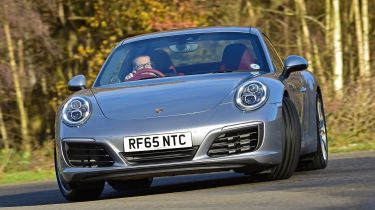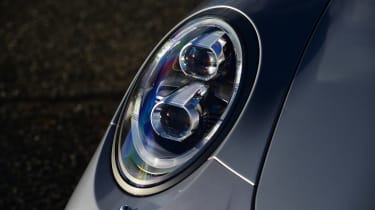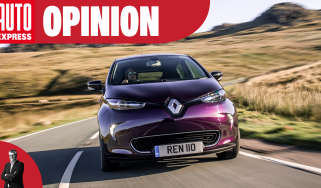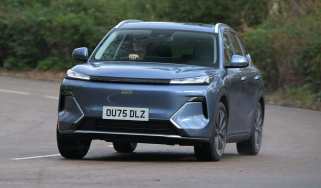Porsche 911 (2015-2018) review - Reliability and Safety
911 mixes solid build quality with robust mechanicals so should prove reliable

Lots of Porsche’s road car tech has been developed on the track, and the brand’s big motorsports presence means good things for road car reliability. If you can prove yourself in a 24-hour non-stop race, road miles shouldn’t be too much of a problem.
Safety is strong on this car, and although Euro NCAP doesn’t crash test the 911, expect it to stand up well to an impact. There are plenty of electronic systems to keep a watch over you, including standard post-collision braking to reduce the effects of a secondary impact and PSM Porsche Stability Management.
This 991.2 model features a new PSM Sport setting, which allows the driver a little more margin for error for a bit more fun in safe circumstances. However, if you brake hard enough to trigger the ABS system, PSM will default back to its most restrictive mode.
On top of this buyers can also go for features like lane change assist, adaptive cruise control and LED headlights, as well as upgraded carbon ceramic brakes for increased stopping power – although the top-spec Turbo S gets these as standard.
Warranty
All Porsches come with a three-year, unlimited mileage warranty, as well as three years’ roadside assistance. This is pretty much the industry standard.
Servicing
With a brand like Porsche, servicing isn’t going to be cheap. Due to the unique layout, with the engine in the rear, access is difficult, so jobs can sometimes take longer to complete than on a regular car.
Servicing prices for the 991 range from £495 for a minor service on a Carrera or Carrera 4, or £995 for major service on a GT3.
The saving grace is the car’s service intervals are every two years or 20,000 miles, so you’ll be able to go longer than usual between routine maintenance appointments, which makes the prices that bit more bearable.




